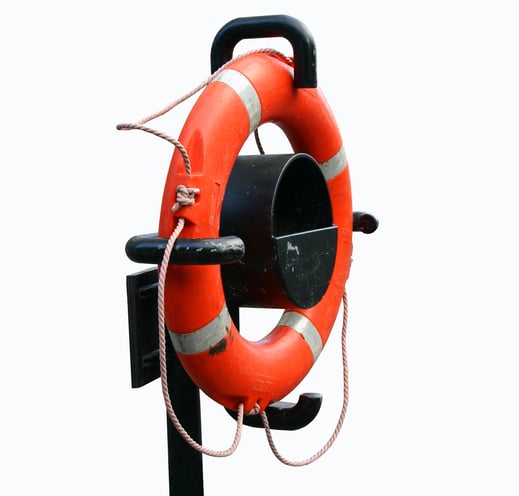The business game has changed. In order to be seen as an organisation with world class supply chain management companies must not only focus on creating a quality product, but must also demonstrate that their business practices have social responsibility as one of their core values.
Consumers have become a lot more discerning concerning the products they choose and the companies they buy from. Just as Nestle seems to be a company many socially conscious consumers stay away from, the opportunity is there for companies to become a sustainability titan consumers run to.

Why a Sustainability Focus is Key for World Class Supply Chain Management:
If a consumer has a choice between a company that uses sustainable business practices and one that doesn't, who do you think they will choose to buy from?
Even if these products cost a little more, our increasing levels of prosperity mean that we have more disposable income and can be more discerning as to where our money goes.
Speaking as a consumer, I used to be drip-fed my information from television and newspapers. Now that we have access to information at home (computers) and on the move (smartphones), we can sift through a range of information and choose the news that piques our interest.
Businesses are waking up to the fact that that consumers aren’t naïve. They can find anything if you search it using Google and if you have a bad track record with sustainable business practices, this can seriously hurt your profits (and burn you on social media).
Non-profit groups and private citizens are holding companies accountable like never before and if you’re not careful, you might find yourself on the wrong end of a boycott campaign.
Dangers of Not Focusing on Supply Chain Improvement
These days, to be seen as having world-class supply chain management, an organisation must demonstrate its willingness to produce quality products with a social responsibility focus. Let’s look at the potential problems that could arise from not having a sustainability focus in your supply chain:
- Losing business and being 'blacklisted' by socially conscious consumers
- Developing a reputation as a ‘shady’ company
- Depleting finite resources and creating greater cost by sourcing more resource
- Quality failure
- Causing damage to the environment
All these points are core reasons why companies looking for supply chain improvement are reaching for sustainability as an essential component of today's business world.
Those companies that don't reach for the sustainability floatation device are in danger of drowning under the waves of public indignation.

How Does Sustainability Aid in Supply Chain Improvement?
The benefits of sustainability to your supply chain are:
- Being transparent – letting your customers know how your products are sourced
- Transparency builds trust
- You’ll be a step ahead of those businesses who don’t have a sustainability focus
- You can’t brag about your sustainability record, if you don’t have one
Take McDonald's for example. They suffered a loss of revenue and a persistant image problem in 2014 regarding their business practices, the healthiness of their meals and the sustainability of their products. However, this has become such a major focus for McDonald's in recent years that they even have a website devoted to their sustainability practices encompassing every step of their supply chain.
How Can Your Business Save Money By Shifting Your Supply Chain To Sustainable Methods?
This is what we call a win, win situation. Here are six standard sustainability measures that can also increase your profits:
- Using renewable energy – Creating your own energy sources such as solar or hydropower can cancel out your companies power bill
- Maintaining equipment – maintaining your equipment means lower running costs and higher life expectancy of your equipment
- Efficiency – making the most out of your resources by not creating needless waste materials
- Reducing waste – Improving your waste reduction can reduce your spending. Recycling is good, investing in more durable equipment and recyclabe materials is better
- Renewable resources – Having a supply chain that can self-replicate is always a bonus
- Joining a paperless world – it’s time to use systems, software and transfer your documents, forms and policies to an online business library.
A sustainable supply chain isn’t just good for our planet and your consumer's conscience, it just makes good business sense.
You also might be interested to know that customers are often expecting suppliers to be compliant with the Sustainable Procurement Standard BS8903 prior to work being awarded.
This means that by securing this standard against all aspects of the supply chain, you will have an advantage over your competitors and another feather in your cap when explaining why you deserve that contract.
Get More From Your Business
If you're interested in taking your supply chain down the sustainability route than we can help. At Triaster, we offer Business Process Management software that maps out the processes of your business from the beginning of your supply chain to consumer delivery.
Sign up to our blog to read more about how Triaster can help you or click on the link below to learn more about how you can improve your supply chain:
Related Articles:
Supply-Chain Sustainability and How it Can Benefit Your Organisation
Achieving ISO 9001:2015 with Business Process Management (BPM)
The Top 10 Things Your Quality Management System Must DeliverWritten by Brad Fagan
Brad joined Triaster in 2016 as our Content Marketing Executive hailing all the way from Middle Earth (the film version, not the book) – New Zealand. Brad’s video skills soon resulted in new weekly Triaster videos and his individual touch in some of the Connector and blog articles. In June 2018 Brad moved to Germany with his wife Lynn.

